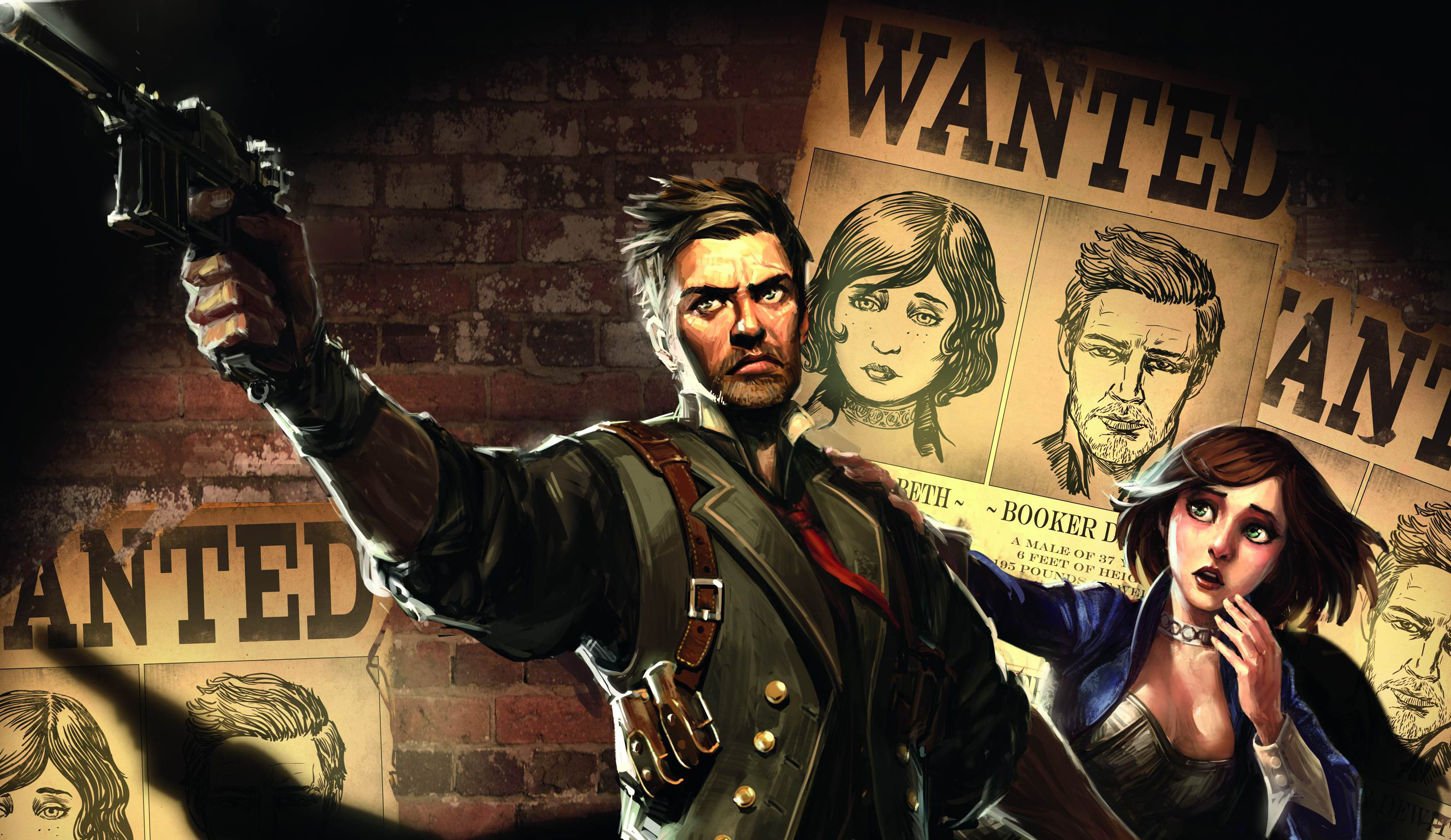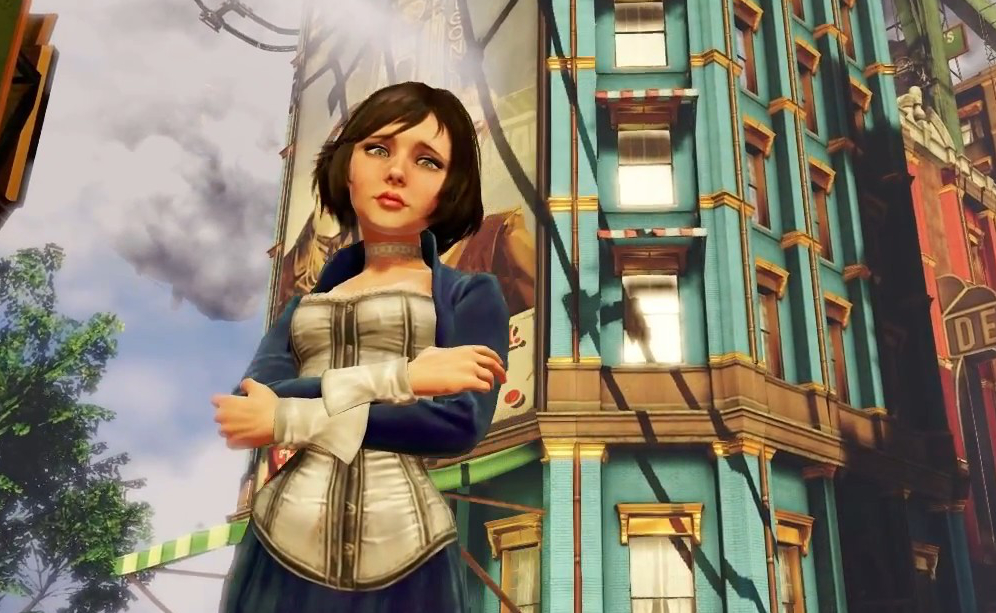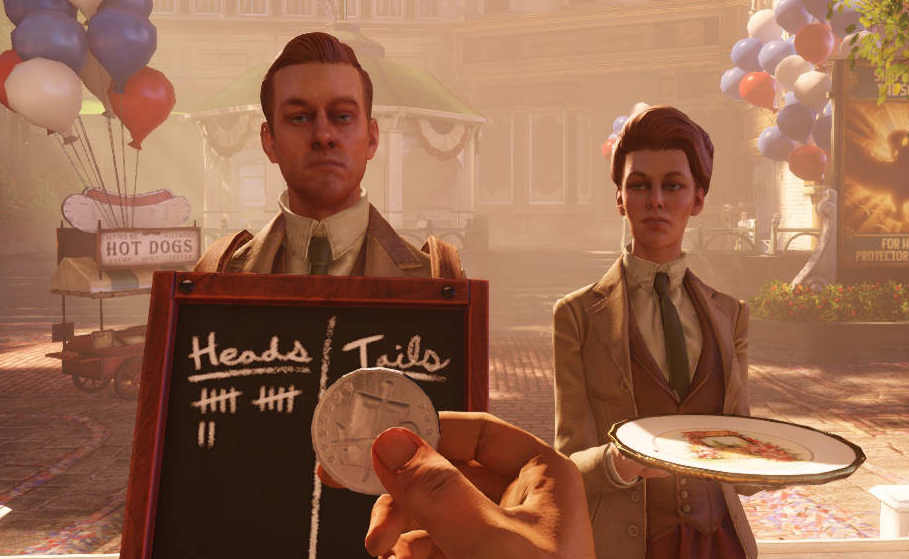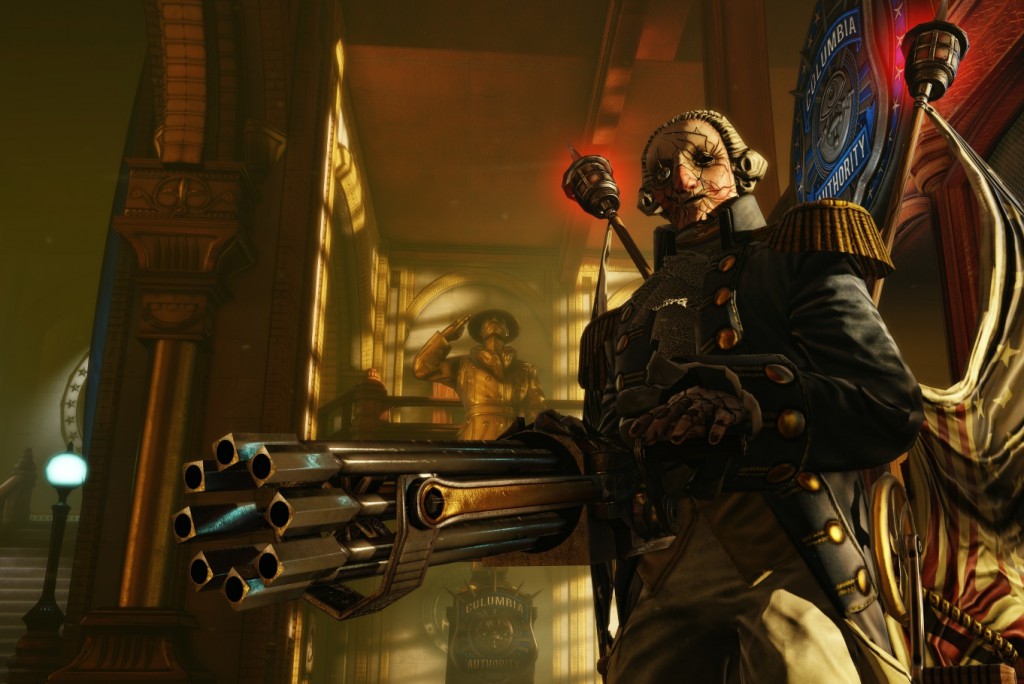It’s a damnable common thing to be treated like a moron. Every trip to the DMV, every rude customer, every work-place exchange between an older colleague who’s convinced you couldn’t find your ass with both hands, Google Earth, and a prison spotlight.
When you turn on the TV, the E! Network is there to remind you that the only thing worth watching is vapid, why-are-they-famous-again rich people with the emotional depth of a castanet left upside-down in the rain. A spin of a radio dial will remind you just how sweet of a deal Mackelmore conned out of the devil, likely with the liberal use of a golden fiddle and “chickens in the bread pan pickin’ out dough.” I’d mention the shit-slathered grease chute that is popular network television, but it’s just going to make you upset and make me concoct more wild country-music related metaphors and I don’t think either of us want that to happen.
You may ask yourself “When is this asshole gonna talk about Bioshock already?,” and to that I say: “RIGHT THE-HELL-NOW, MELONFARMER!”
I wax poetic about being talked down to, mostly because I just beat popular PS3/XBOX360 game “Bioshock Infinite.” Bioshock Infinite, for the uninitiated (Obligatory Bane Voice: But we. Are. Initiated), is the third game in the Bioshock series, the seminal game series known for it’s high-art aspirations, philosophical deconstructions, and SHOOTING BEES FROM YOUR HANDS. The bee thing cannot be understated. Though, in “Infinite,” they replace the bee-shooting power with a raven-shooting power, which I think we can all agree is a Randall Flaggingly acceptable swap.
The original Bioshock put objectivist Ayn Rand’s theories of self-interest and separatist utopia under the microscope, and (to the surprise of many) offered some interesting observations to people on either side of the argument. You know, when you weren’t smashing psychopaths with a monkey wrench and ripping seaslugs out of little girls. The sequel took the formula and twisted it, putting you in the suit of a Big Daddy and slapping you on the opposite side of the equation, asking whether or not being unnaturally compelled to do a good deed cheapens the deed itself.
Bioshock Infinite tossed the underwater dystopia in order to reach for the sky (sorry), to the floating city of Columbia and questions of race/class warfare and the razor-thin distinction between a terrorist and a freedom fighter. Though the city is gorgeous, and the racial inequality questions are interesting (especially the use of propaganda), the game makes a point to juke away from the familiar formula. Sure, there’s an evil tyrant guy and a good-idea-gone-horribly-wrong city, but it merely serves as a backdrop to tell a relatively straight science fiction story.
The story is Booker DeWitt, ex-Pinkerton strikebreaker, war criminal, and all-around classical repentant hero, and the ever-growing touching relationship that develops between he and a Disney princess (with the serial numbers filed off) named Elizabeth. Elizabeth is wide-eyed, naive but rascally, with a back story that mixes equal parts Rapunzel, Belle, and Jasmine into a delicious cocktail. She yearns for a Paris she’s only read about, she’s a deft hand with a lockpick (multiple escape attempts and a lot of time on her hands), and she’s even handy in battle.
And don’t be worried – though she is with you for the majority of the game, you are in no way on an escort mission. Elizabeth is always finding health packs, extra ammo, salts (mana, essentially), and has a surprising suite of eye-popping abilities. Her health never runs low, she revives you when you die – a fairly convincing argument could be made that she is escorting you through the game. Poor girl.
Once Elizabeth’s story begins to unspool, the city itself fades out of focus, which is no complaint. Infinite leaps ass-first into a steaming pile of sci-fi ideas with little explanation – if you weren’t paying attention to the audio recordings you were picking up on the way, nuts to you. Infinite never takes even a moment to repeat a point – if you missed the idea that parallel realities don’t react well to people being in two places at once, you are not going to understand a major component of the ending.
Though the science is FIRMLY in the “pseudo” category, it’s nice to get a little quantum theory mixed in with your shotgun blasts. The core of the story (spoiler free, you and me) is the old song that every decision you’ve ever made branches off a new reality, one that itself splinters infinitely with each new decision. Elizabeth’s powers dovetail nicely with this idea, which is a breath of fresh air in the current mindset of “it’s magic, deal with it asshole” that pervades most genre fiction. Not that I hate magic – far from it, but it’s nice to have things make a kind of Marvel-esque science that, while not perfectly accurate, is close enough for government work.
The most shocking aspect of the game is the ending. Again, without spoiling anything, the game’s ending is practically a master class in subtlety. No explanation, no repetition. They drop a fairly enormous twist ending on you and jump immediately to credits. I stared in awe as white letters scrolled on black for easily twenty minutes, at first FURIOUS at the grenade they’d tossed in my lap.
It didn’t make sense. How could they have . . . oh. That means the girl and the guy were . . . that makes sense. And if that character SEEMS younger, it’s because . . . well I’m glad I listened to that recording. Oh, and the two-places-at-once thing! Sweet Batman’s Cowl! Of course! That coin toss at the beginning of the game . . . does that mean that . . . .WHAAAAAT?!?!
It had the sort of “stop and construct” feeling the first time after watching Donnie Darko, where the writers weave a web you didn’t even realize was being weaved just as they kicked you into its sticky strands, summon the spider, and mix their metaphors LIKE CRAZY.
This is a quick breakdown of my feelings: ENDING. That was haunting, but horrible. Half-way through the credits. Holy crap that was pterodactyl-level awesome. Credits end. I was really impressed with that, even though I wish . . . After the credits. OH SHIT SON, Choose-Your-Own-Ending!
It’s rare that mainstream media not only allows you to think but positively DEMANDS it, if for nothing more than so you can justify spending $60 bucks.
Bioshock Infinite is the kind of game that could be taught in school. The level of required interpretation is high, the level of buy-in equally so, and the character stuff is breathtaking. There’s a moment about halfway through the game where Booker runs into a guitar, and you have the option of playing it or not, which triggers a quiet cutscene. You don’t have to do it, and it’s certainly up to you to interpret your Booker as you see him, but I urge you to give the moment it’s full due. When it happens, I sat quietly, clutching the red plastic controller to my chin, staring forward with my breath held. Just then I knew what kind of trouble I was in, and just how little I wanted to leave the city of Columbia.
I’m not going to give a review score or anything, mostly because I think review scores are by-and-large oversimplistic and unhelpful, but I will say this: the game is fun by itself, but the story is transcendant.
Wanna know how I know? There are multiple flow-charts on the internet, already, to explain Bioshock Infinite’s ending. FLOWCHARTS, people. They look like something off of Doc Brown’s chalkboard. It’s brilliant, and how often does that shit happen, anyway?
Oh, and you get to shoot electricity at a steampunk robot George Washington ON AN AIRSHIP.
Just read that last sentence again and buy the game already. Read it one more time, come on. For me.





It was a pretty brilliant story. Something straight off the page of Michio Kaku’s book ‘Hyperspace’. I had tears swelling in my eyes at the end because of just how beautiful the story was told. I don’t think I’ve ever reared up during a games ending.